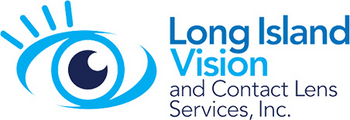.jpg?locale=en-US)
How Safe Are Overnight Contact Lenses?
Published:
Your optometrist recommended orthokeratology (ortho-k) treatment for your child — that is, wearing corrective lenses overnight. However, the idea of having your child wear contact lenses while they sleep may be worrisome. Can it lead to an eye infection, or scratch/ squeeze the cornea?
A closer look into the research done on overnight ortho-k lens wear reveals the extent of any actual risk factors and how they compare to other contact lens options.
What Are Overnight Ortho-K Lenses?
Ortho-k lenses are custom-made contact lenses that are worn overnight to gently reshape the cornea, thus enabling clear vision the following day. Research shows that overnight ortho-k not only effectively removes the need to wear any glasses or daytime contact lenses, but can slow down the progression of myopia. Optometrists, such as , are therefore increasingly using ortho-k for myopia management as well as for patients who no longer want to wear any optical correction during the day.
Is Your Child at a Higher Risk of Eye Infection With Ortho-K?
An extensive study involving 1300 people at Ohio State University concluded that overnight ortho-k carries no more risk than any other type of contact lens modality.
Hygiene plays a vital role in preventing infections with all contact lenses. During the lens fitting process, your eye care professional will provide you and your child with detailed information and guidance on how to clean and store the lenses, as well as what precautions to take. Make sure to carefully follow the instructions regarding the cleaning schedule and use only the appropriate solutions provided for the overnight lenses.
Other Potential Risks With Orthokeratology
Can an Ortho-k Lens Squeeze or Scratch the Cornea?
An ortho-k lens floats on a tear film covering the eye. The reshaping is achieved by hydraulic force that is applied to the thin central part of the cornea without any tissue being squeezed or crushed.
A corneal abrasion can occasionally occur and is usually the result of a fingernail or lens edge scratching the cornea. That said, the risk isn't any higher with overnight lenses than with other rigid lenses.
Do Overnight Lenses Involve a Higher Risk of Hypoxia?
The cornea needs a regular oxygen supply. This supply is typically reduced when covered by a contact lens. Extended uninterrupted contact lens wear can cause hypoxia and swell the cornea — this applies to all contact lens modalities when worn longer than recommended.
What is Corneal Staining?
This is likely the most common of all contact lens complications. Corneal staining refers to the appearance of tissue disruption and other changes on the corneal surface. This may be due to a variety of causes, such as improper lens fit, foreign bodies, tear film disruption or irregularities at the edges of a contact lens.
A corneal stain can also occur when a specific contact lens solution comes into direct contact with the cornea and the patient has a reaction to the chemicals in that solution. Research shows that children who wear ortho-k lenses are at no greater risk of corneal staining than those who wear soft contact lenses.
What You Need to Remember When Handling Ortho-K Lenses
- Always wash hands before inserting or removing contact lenses.
- Make sure to strictly adhere to the cleaning and disinfection routine as instructed by your optometrist.
- Provide your child with all the necessary assistance and support regarding the care of the lenses. Young children should not handle the lenses on their own.
- Only use the solutions recommended by us. If you feel your child has an issue with any of them, please contact us.
- Frequently replace the lens case to avoid microbial contamination and make sure you or your child do not touch the tip of the solution bottle.
- Do not use tap water to rinse your lenses, always use saline solution.
- Never use a soft contact lens solution for a rigid lens. These solutions are made of different liquids, each with their own guidelines and protocols.
- If your child feels discomfort or experiences redness of the eye, contact us.
How Safe Are Overnight Contact Lenses? from EyeCarePro on Vimeo.
Overnight Ortho-K Lenses are Safe
Orthokeratology is a safe and effective method of providing clear daytime vision and of slowing down the progression of myopia in children.
As long as they carefully follow the instructions regarding hygiene and the handling of the lenses, there should be no reason to worry. Children mature enough to understand the importance of these instructions will also be responsible enough to adhere to them.
Get more information regarding overnight ortho-k lenses at Specialty Contact Lens Center At Long Island Vision Care. We will carry out an eye exam and will happily answer any questions you may have.
